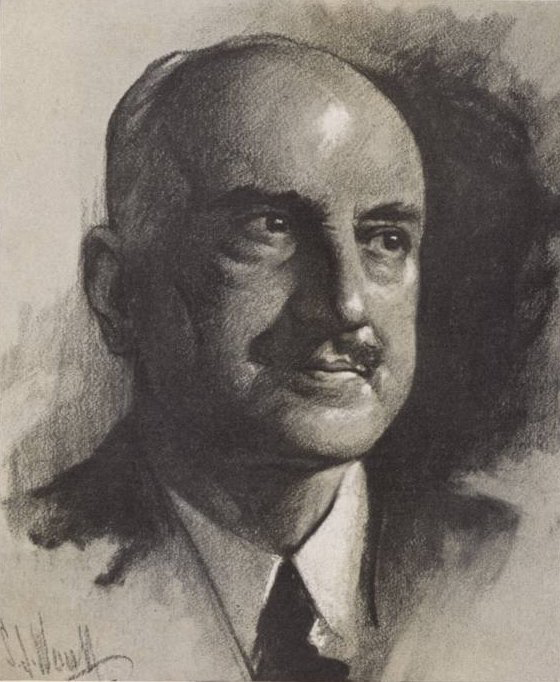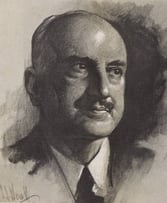Transforming the future by reflecting on the past
August 14, 2017

 The philosopher and essayist George Santayana is perhaps best remembered for the aphorism “Those who cannot remember the past are condemned to repeat it.” Remembering the past is, of course, important - but memories alone are not going to help us achieve a better future state.
The philosopher and essayist George Santayana is perhaps best remembered for the aphorism “Those who cannot remember the past are condemned to repeat it.” Remembering the past is, of course, important - but memories alone are not going to help us achieve a better future state.
More important is what we do with those memories and those lessons learned. As individuals, we’ve all got the ability to learn and adapt - and this is of course what our best sales people do, often on their own initiative, from both their successes and their failures.
They learn to do more of what works, and they learn to avoid doing the things that did not work. Their commitment to continuous self-improvement tends to progressively widen the performance gap between our top sales people and the rest.
But we can’t afford to leave this learning to a handful of enlightened, self-motivated individuals - we need to create an environment in which best practices and winning habits are shared across our whole sales organisation…
ACTING ON WIN-LOSS ANALYSIS
This is, of course one reason why win-loss analyses are so important. They give us all the chance to recognise which factors, actions and behaviours consistently lead towards success - and which ones tend to lead towards failure.
But writing up the latest win-loss review is of course just the start of the journey. We need to learn from every such report and act upon the lessons learned. We need to guide every member of the sales organisation in what they need to do and (just as important) what they need to avoid doing as a consequence of the accumulated experience of their peers.
There are plenty of other examples of the scope for collective learning - but in this article I want to briefly draw your attention to just three more types: anecdotes, frequently asked questions, and issue-focused talk tracks.
ANECDOTAL EVIDENCE
One of the key factors that always seems to separate top sales people from the rest is their use of stories and anecdotes. They have learned that storytelling is often a far more effective way of getting their point across than pitching. They know that they get even better traction when they incorporate a human dimension to the story.
So my next recommendation is that you make a determined effort to gather up all these stories, document them in a structured form, share them with every member of the sales organisation and coach them in how to deliver the anecdotes.
FAQs - AND EFFECTIVE ANSWERS
Top sales performers also seem to have a gift for dealing with the toughest questions that their prospects throw at them. For some, this is an innate gift. But for many, it’s the result of trial and error, and learning what responses are most effective.
My third recommendation is that we invest the time and effort to gather up all these frequently-asked, tough-to-answer questions together with the responses that successful sales people have found most effective - and that we share and coach all our sales people in how best to deal with them.
TALK TRACKS
The final opportunity for collective learning is to share issue-based talk tracks. What are the handful of issues that most commonly catalyse our prospect’s buying journeys, and what can we learn from our top performers' ways of dealing with them?
In particular (for students of SPIN selling®), how have they learned which implication questions to ask to get the prospect thinking about the issue and all its ramifications? And what about the insights they have found most effective in taking the customer conversation to the next level?
LEARNING FROM THE EDGE
The fastest and best learning in your company is not taking place in the classroom, or in your learning and development system. It’s happening at the edges of your sales organisation in every interaction that your sales people are having with their customers.
Some of those interactions succeed, and some of them fail. By making a determined effort to learn what is working and what isn’t, and by sharing those lessons with every member of our sales organisation, we can help to prevent the same mistake being repeated - or the same opportunity being missed.
ABOUT THE AUTHOR
 Bob Apollo is a Fellow of the Association of Professional Sales and the founder of UK-based Inflexion-Point Strategy Partners, home of the Value Selling System®. Following a successful career spanning start-ups, scale-ups and corporates, Bob now works with a growing client base of tech-based B2B-focused high-growth businesses, enabling them to systematically establish their distinctive business value in every customer interaction.
Bob Apollo is a Fellow of the Association of Professional Sales and the founder of UK-based Inflexion-Point Strategy Partners, home of the Value Selling System®. Following a successful career spanning start-ups, scale-ups and corporates, Bob now works with a growing client base of tech-based B2B-focused high-growth businesses, enabling them to systematically establish their distinctive business value in every customer interaction.


Comments